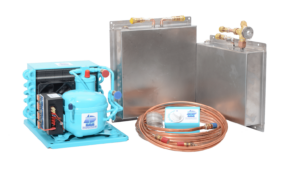When you’re out on the water, the last thing you want to worry about is whether your marine battery charger can meet your needs. A reliable marine battery charger is essential for ensuring your boat’s electrical systems run smoothly, and your batteries stay charged. But with so many options on the market, how do you choose the right one?
In this blog, we’ll explore the key factors to consider when selecting a marine battery charger and how to test its performance.
How to Choose a Marine Battery Charger
- Voltage Compatibility: Ensure the charger is compatible with the voltage of your boat’s batteries. Most marine batteries are either 12V or 24V, so choose a charger that matches your system.
- Amperage Output: Consider the amperage output of the charger, which determines how quickly it can recharge your batteries. A higher amperage charger will charge your batteries faster but may require a larger power source.
- Type of Charger: There are different types of marine battery chargers, including onboard chargers, portable chargers, and solar chargers. Choose the type that best suits your needs and usage patterns.
- Waterproofing and Durability: Since marine environments can be harsh, look for a charger that is waterproof and built to withstand the rigors of boating.
- Safety Features: Look for chargers with built-in safety features such as overcharge protection, reverse polarity protection, and spark-proof technology to prevent accidents and damage to your batteries.
- Size and Installation: Consider the size and installation requirements of the charger to ensure it fits in your boat’s available space and can be installed easily.
- Warranty and Support: Check the manufacturer’s warranty and after-sales support to ensure peace of mind and assistance in case of any issues.

How to Test a Marine Battery Charger
- Voltage Output Test: Use a multimeter to measure the charger’s voltage output when it’s connected to a battery. Compare the measured voltage with the charger’s rated output to ensure it’s within acceptable limits.
- Amperage Output Test: Use an ammeter to measure the charger’s amperage output while charging a battery. Ensure the measured amperage matches the charger’s rated output to verify its performance.
- Charge Time Test: Time how long it takes for the charger to recharge a battery from a specified state of discharge fully. Compare the charge time with the manufacturer’s specifications to evaluate the charger’s efficiency.
- Temperature Test: Monitor the charger’s temperature during operation to ensure it doesn’t overheat. Excessive heat can indicate inefficiencies or potential safety hazards.
- Load Test: Connect the charger to a fully charged battery and measure its ability to maintain its voltage under load. A good charger should sustain the battery’s voltage even under heavy loads.
Choose Our Reliable Marine Battery Chargers
Choosing the right marine battery charger is essential for maintaining your boat’s electrical systems and ensuring a worry-free boating experience. With the right charger, you can enjoy peace of mind knowing your batteries are always ready to power your adventures on the water.
Contact us at Cruise RO and choose one of our marine battery chargers that best suits your needs.




